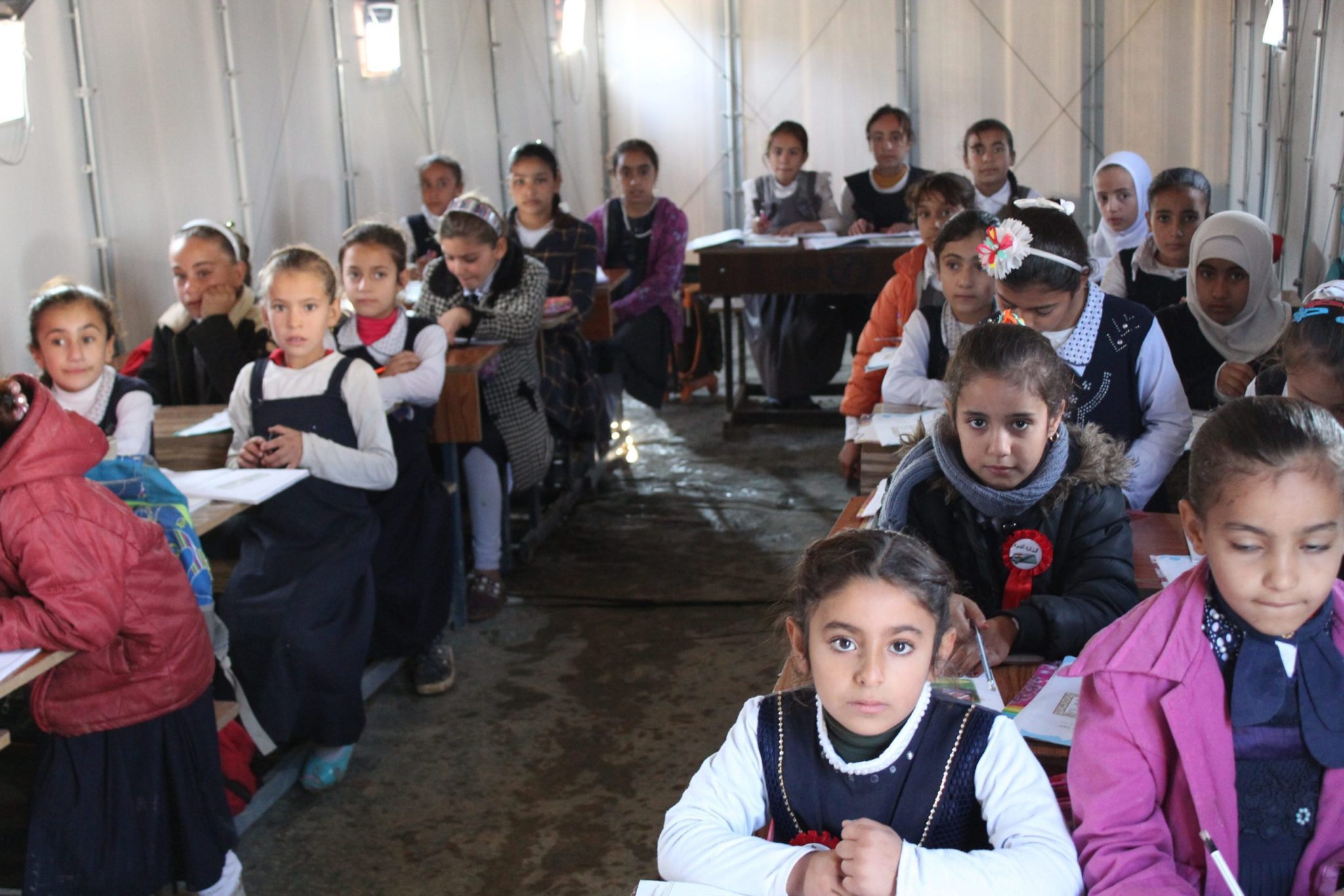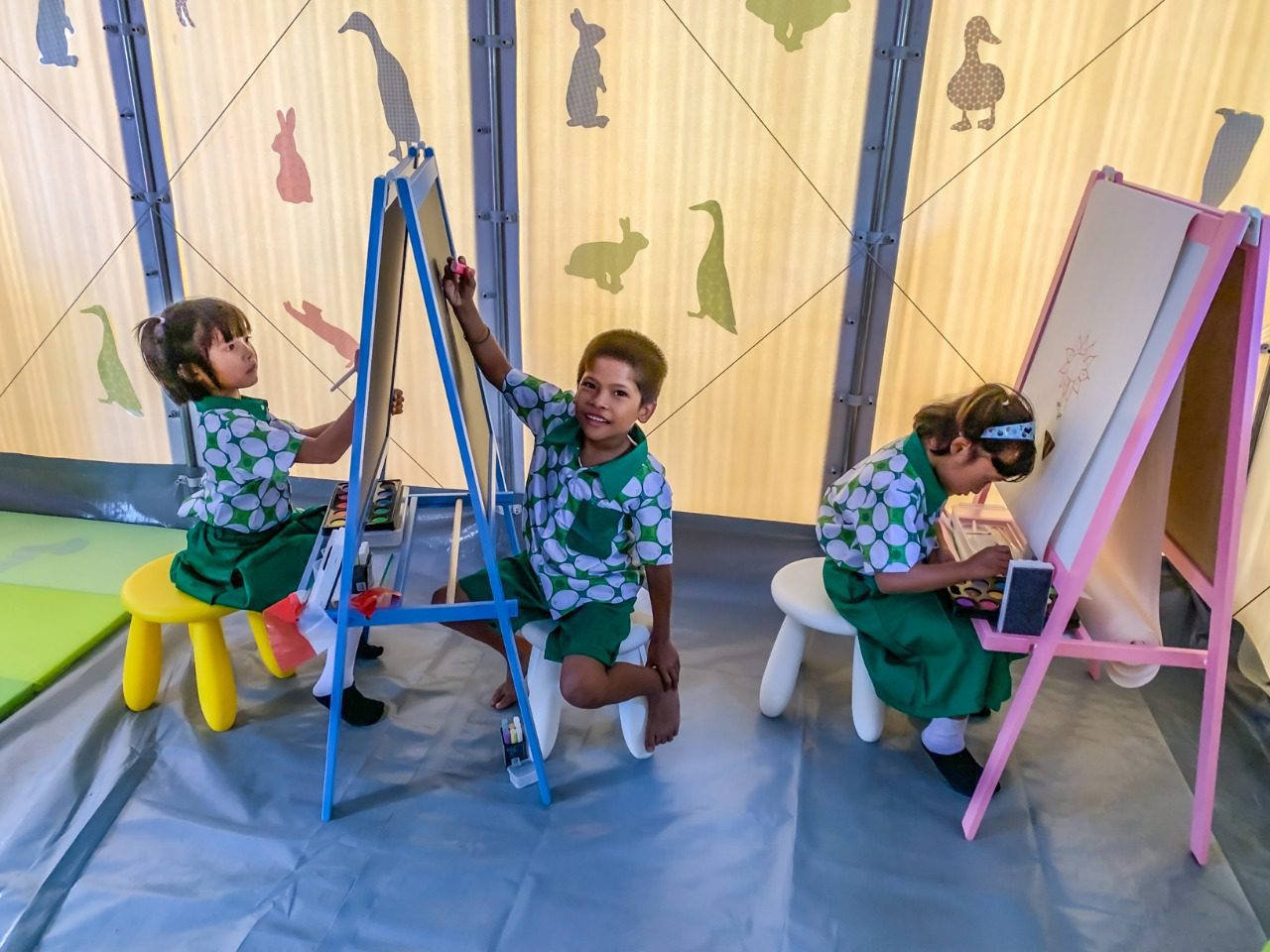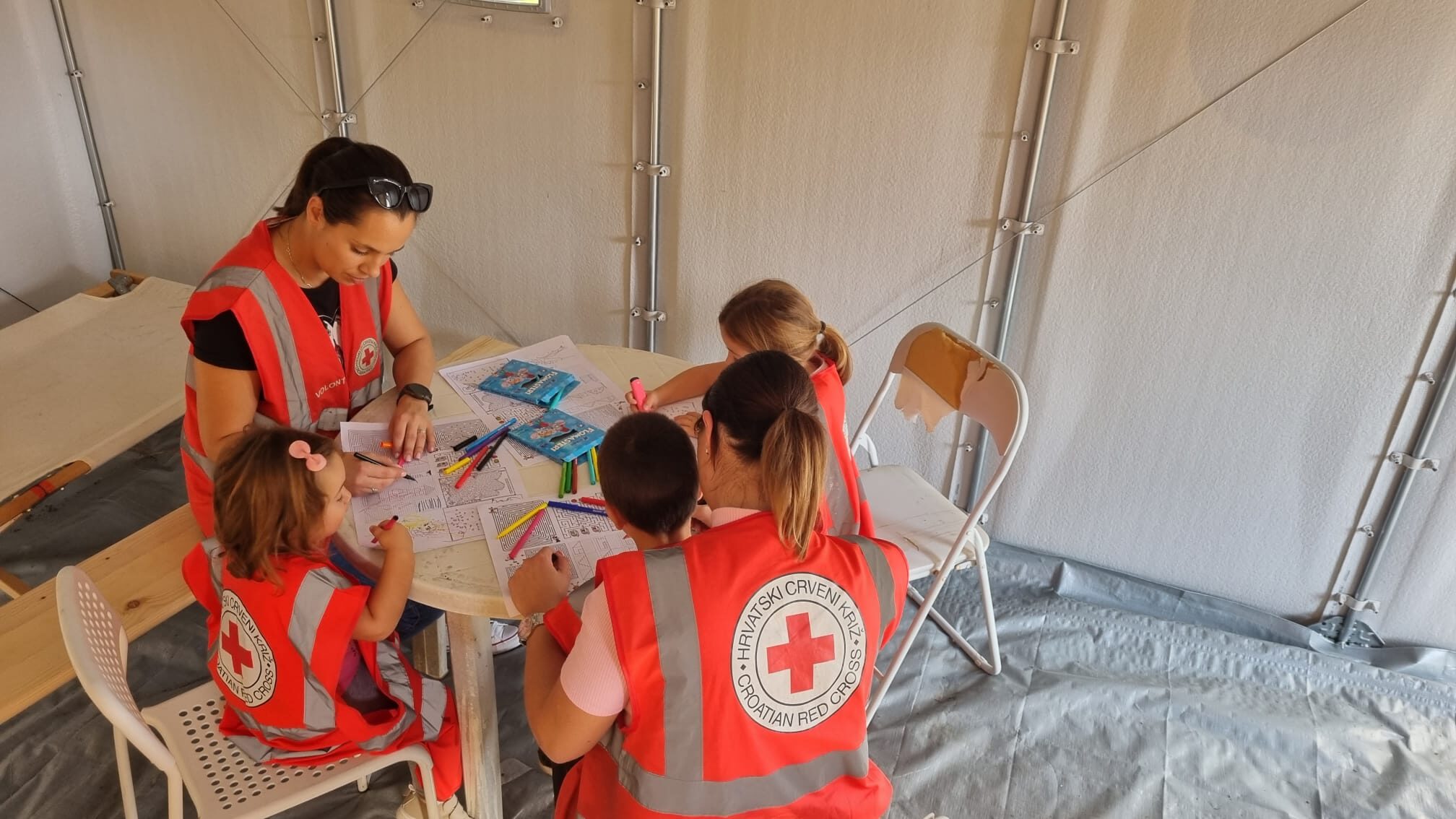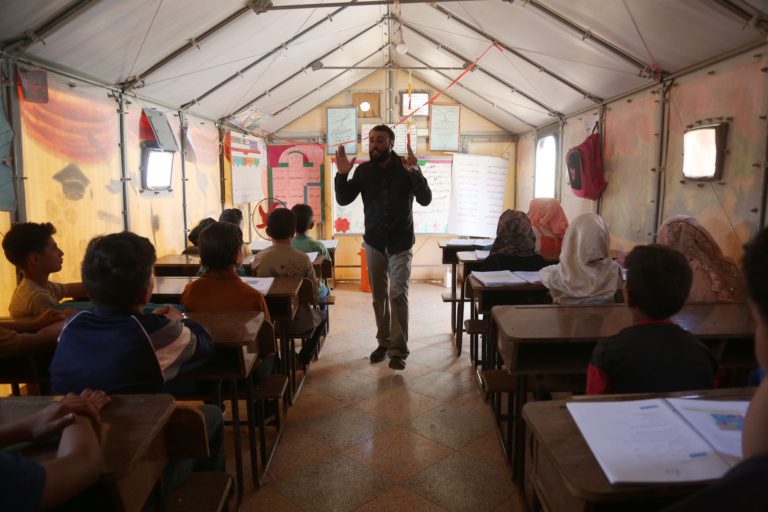150,000 students access education and build a brighter future across Iraq.
Children of war-torn countries will carry an enormous responsibility as they grow up: to rebuild their nation. Every child must be provided safety, security and education while growing up, but today many million refugee and IDP children go without schooling. In their support of Iraqi children to build a brighter future, our partner Terre des hommes, a Swiss non governmental organisation for children’s aid, has implemented temporary learning spaces in the Kirkuk and Salah al-Din regions of Iraq, where more than 150,000 children receive education today.
“I had 220 students that I had to teach in four classrooms, it was crowded, and learning quality was dropping as a consequence”, said Mr. Rafid Majeed, Headmaster of the Al-Ayoubi School. “Today, the school has eight classrooms with 27 students per class, which allows us as teachers to deliver better education quality and enroll more students for the upcoming semester”.
 Background
Background
In 2018, the humanitarian crisis in Iraq has remained one of the world’s largest. The violence perpetrated by the Islamic State (ISIS/ Daesh) group has forced hundreds of thousands of families to flee their homes. Many of them have been living in precarious conditions and are unable to provide for their children’s basic needs such as food, security and healthcare. While the restoration of Iraq is expected to take many years, nearly 4 million Iraqis have already returned to their homes where they face destruction and devastation. During this protracted conflict, hundreds of thousands of children have been exposed to displacement, violence and a lack of schooling – the latter due to their IDP status, distance to school facilities, destruction of infrastructure, or lack of id papers to prove the child’s identity and level of education.
8.7 million Iraqis are affected by the crisis
Around 5.9 million people have been displaced by the emergence of ISIS [1] and a total of 8.7 million people are affected by the crisis [2].
The destruction of infrastructure, after many years of combat operations against ISIS, is severe. The regions to which people are now returning are particularly affected by lack of psychosocial support, case management and sanitation services. These precarious situations can lead families to adopt negative coping mechanisms such as early marriage and child labour (as family income is prioritised), instead of going to school.
For the children who are able to attend school, access is still impeded: overcrowded classes and lack of material, which consequently affects children’s ability to concentrate and perform. Most of the children have lost years of education. The number of teachers is insufficient – with up to 100 students per teacher – which has resulted in children having to attend school in shifts. Moreover, teachers are not equipped to adequately support children who have been out of school for a very long time and, throughout this time, been exposed to trauma.
 Temporary learning spaces in 330 schools
Temporary learning spaces in 330 schools
Terre des hommes decided in agreement with the Iraqi Ministry of Education, to implement temporary learning spaces in schools across the Salah al-Din (SAD) and Kirkuk governorates.
In order to target zones and schools with the largest needs, and to ensure mediation with the communities, the program was designed in collaboration with headmasters and teachers at school level, the District of Education at district and governorate levels as well as the Ministry of Education at a national level. In September, Terre des hommes carried out an assessment of 200 schools, and subsequently rolled out the distribution of more than a thousand Better Shelter units, which were set up during the months of September and October. The learning spaces were equipped with desks, chairs, a white board, fire extinguishers and electricity connections.
Today, 150,000 students receive primary education through the program, in 1,152 Better Shelter units which have been implemented in 330 schools, with an average of 450 students per school.
“Better Shelter has been a large and satisfying project, and the impact it had was truly motivating” said, Sara Faiek, a Better Shelter Supervisor. “The project made a real impact on education in rural remote areas. These are areas in which schools had fallen into a state of disrepair or were badly damaged during the war against ISIL, and as a result were overcrowded or children were unable to attend school. The installation of Better Shelter classrooms enabled a healthy learning environment for the students and increased the number of students being able to be enrolled at each school.”
The project was partly financed through generous donations by Borealis, UPS Foundation and private donors through the crowdsourcing platform www.respekt.net.
[1] IOM, Displacement Tracking Matrix Round 102, 2018: https://reliefweb.int/report/iraq/iraq-displacement-tracking-matrix-dtm-round-102-august-2018
[2] OCHA, Global Humanitarian Overview, 2018: https://www.unocha.org/sites/unocha/files/GHO2019.pdf




